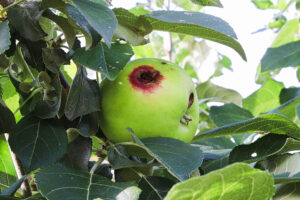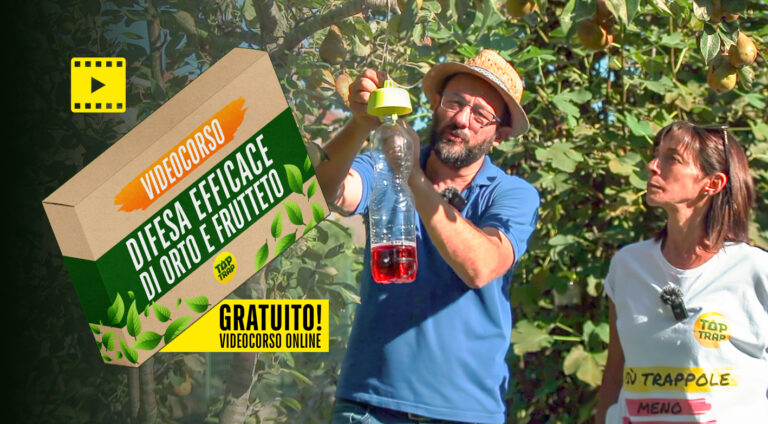
Lepidoptera perform several generations per year, so adults reproduce several times during the insect season. The first individuals flicker around May, and this is the ideal time to implement a non-invasive defence, bearing in mind that unexpected climatic changes can also affect the seasonality of the insects.
Lepidoptera infestations on fruit last throughout the summer and continue until mid-autumn. The fruit moth and the carpocapsa, for example, are active as early as spring: their larvae (what we call fruit worms) enter the fruit and cause the actual damage by ruining the crops and, in some cases, this damage is so severe that the entire harvest may be lost. The most effective defence strategy is to prevent mating by trapping the adults, thus avoiding an excessive proliferation that would inevitably lead to enough larvae to ruin the crop. Here are some insights.
Using lepidoptera traps in the correct way is the key element for successful trapping: for this purpose, it is useful to know the life cycle of the pest and to act as preventively as possible, limiting egg laying. Tap Trap and Vaso Trap traps should be set as soon as the adult enters the field in order to avoid mating, and should be kept in the field with a bait that is always active, until the end of the season, even in late autumn. Click on the trap to see its characteristics and various uses in agriculture.

Head Office:
Via Caduti per la Libertà, 39
10044 PIANEZZA (TO)
Warehouse:
Via dei Ronchi, 61
10091 Alpignano (TO)
Tel. +39 011.988.68.40![]() +39 379.2370074
+39 379.2370074
info@taptrap.com

CARELLO ROBERTO di BELLINI VANDA
Copyright © 2024 All rights reserved
VAT no. IT12508090011 – C.F. BLLVND57L43H355W –
N.REA TO1295145

Iscriviti e ricevi subito un coupon di € 5
da utilizzare nel nostro shop online

Scopri il nostro videocorso gratuito
DIFESA EFFICACE di Orto e Frutteto
Tanti consigli pratici per prevenire le infestazioni di insetti dannosi in modo ecologico – con Pietro Isolan